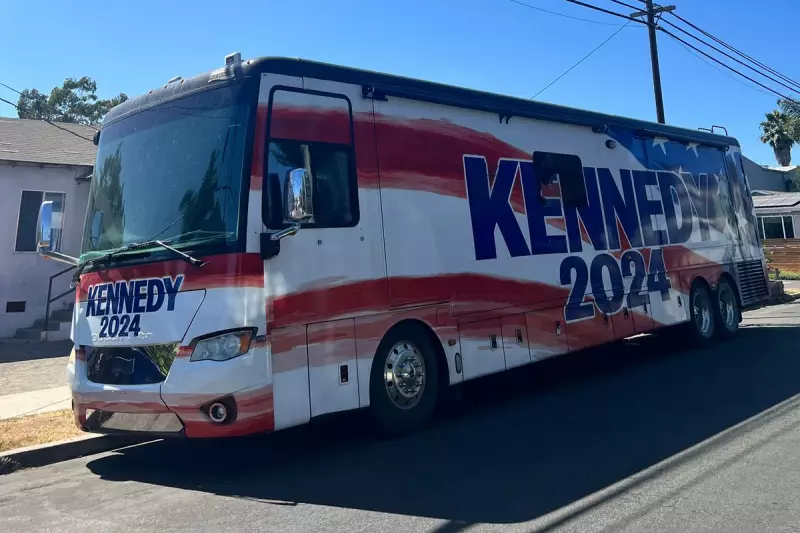
The presidential campaign of Robert F Kennedy Jr has been rocked by revelations about the mysterious ownership of his signature campaign bus, raising urgent questions about political transparency and hidden financial backing.
The Million-Dollar Mystery on Wheels
Kennedy's distinctive 'Better Bus' - a converted coach that has become a mobile symbol of his independent White House bid - is owned not by his campaign, but by a limited liability company controlled by a wealthy Republican donor. This arrangement allows the true source of this substantial campaign asset to remain shrouded in secrecy.
American Values 2024, the super PAC supporting Kennedy's presidential run, has been paying approximately $15,000 monthly to lease the vehicle from a company called Health and Wellness Holdings LLC. The bus features prominently in Kennedy's campaign events and has become an instantly recognisable part of his political brand.
The Republican Connection Exposed
Documents obtained by The Independent reveal that Health and Wellness Holdings is owned by Patrick Byrne, the former Overstock.com CEO and prominent Trump supporter. Byrne has previously admitted to funding what he described as a 'political espionage operation' during the 2020 election cycle.
This connection to a controversial Republican figure has sparked criticism from government watchdog groups, who argue it undermines Kennedy's image as an independent candidate free from establishment influence.
Legal Grey Areas and Ethical Questions
The arrangement exists in a legal grey area that highlights significant gaps in American campaign finance laws. While federal regulations prohibit super PACs from coordinating directly with campaigns, the bus lease demonstrates how wealthy donors can still provide substantial indirect support.
Kennedy's campaign has stated they were unaware of the bus's ownership details, telling reporters: 'We had no knowledge of who owned the bus. We simply knew the bus was available for our use.'
However, ethics experts warn that such arrangements risk creating 'shadow campaigns' where wealthy individuals can exert influence while maintaining plausible deniability about their involvement.
Broader Implications for Election Integrity
This revelation comes amid growing concern about transparency in political funding, particularly regarding the influence of wealthy donors on both sides of the political spectrum. The Kennedy bus saga serves as a case study in how modern campaign finance laws can be navigated to conceal the true sources of political support.
As the 2024 election intensifies, this story raises fundamental questions about who really powers political campaigns and whether current disclosure requirements adequately protect democratic processes from hidden financial influence.





